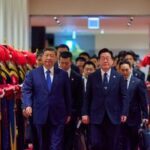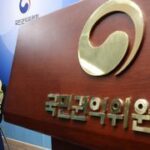U.S. to Crack Down on Investments in Chinese Tech Sectors: AI, Quantum, and Chips Targeted
Daniel Kim Views

The U.S. government has decided to impose strict limitations on American capital investments in cutting-edge technologies within China. The U.S. Treasury Department (USDT) released the “Final Rule for Implementing the Executive Order on U.S. Investments in Certain National Security Technologies and Products in Countries of Concern” on Monday, following an executive order signed by President Joe Biden last year. This rule is set to take effect officially on January 2 of next year.
The United States has designated China, Hong Kong, and Macau as “countries of concern” and plans to limit rigorously and even prohibit investments in technology sectors in these regions. Companies intending to make such investments must report to the USDT in advance with Secretary Janet Yellen. USDT plans to establish a new Global Transactions Office within the Investment Security Bureau to facilitate this.
The White House explained, “The Biden-Harris Administration is committed to keeping America safe by preventing countries of concern—namely the People’s Republic of China—from advancing key technologies critical to their military modernization.” It clarified that these measures ensure that U.S. foreign investments are not misused for technological advancements that threaten national security.
Paul Rosen, Assistant Secretary of the Treasury, explained that the rule safeguards technologies essential for advancing next-generation military surveillance, cybersecurity applications, and specific fields like AI, semiconductors, and quantum technologies to protect U.S. security interests.
The semiconductor sector will prohibit transactions related to advanced electronic design software and manufacturing tools, advanced integrated circuit design and manufacturing, and supercomputers.
Moreover, transactions involving developing and producing key components and developing quantum networks and communication systems will be restricted in the quantum computing sector. In the AI sector, all transactions related to system development will be prohibited. Violations will result in civil and criminal penalties, including fines of up to USD 500,000.
Though these new regulations are expected to draw strong opposition from China, they are not anticipated to impact South Korean companies significantly. A representative from a South Korean company with U.S. operations commented that they perceive the regulations as primarily aimed at controlling American firms, adding that they are currently reviewing the specifics.















Most Commented